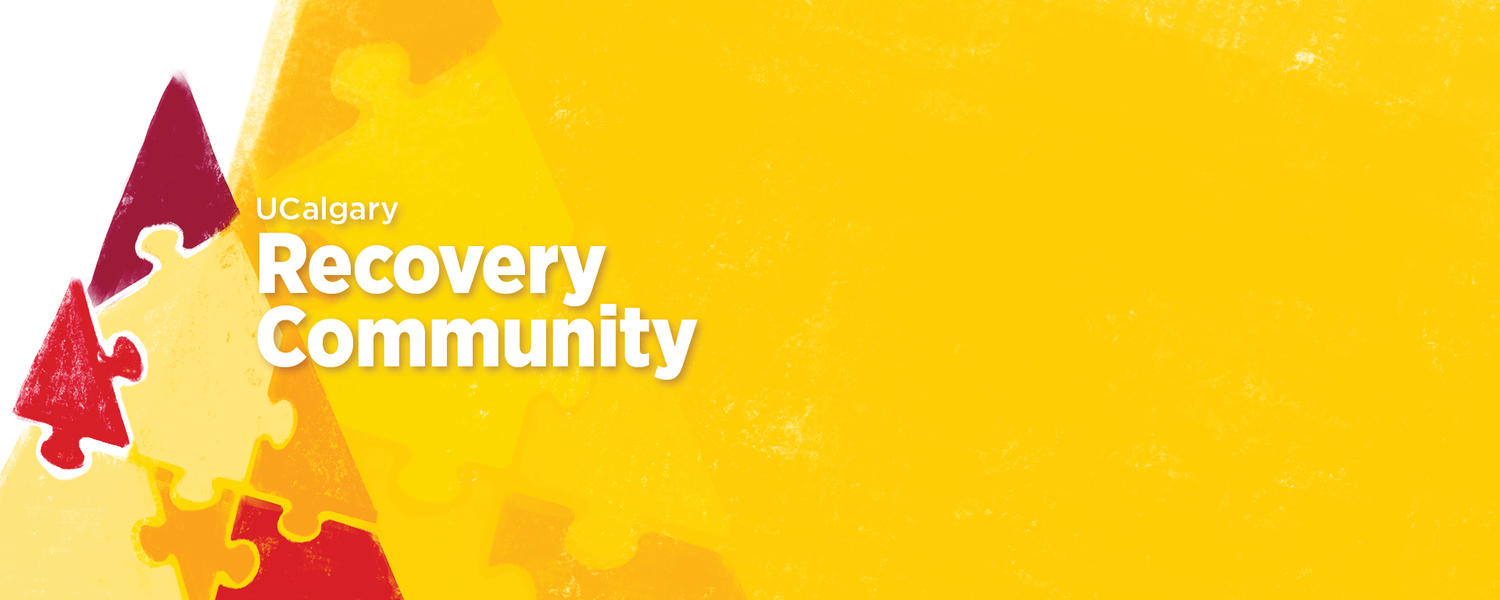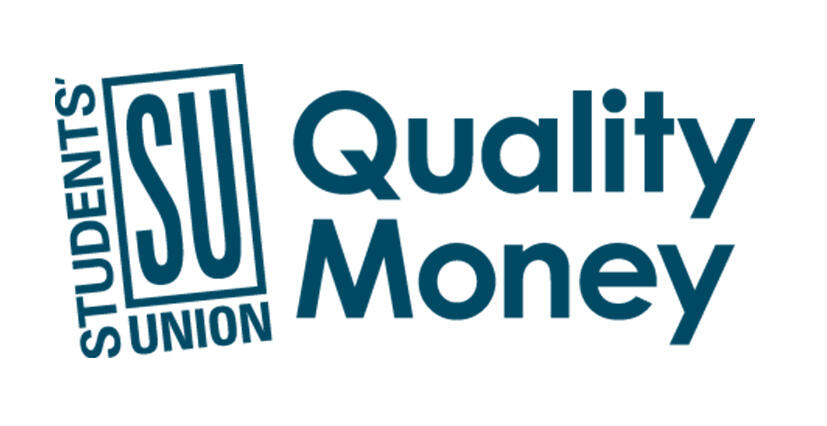
UCalgary Recovery Community
Are you questioning your relationship with substances and/or other behaviours? Are you in recovery, or seeking recovery from addiction?
You are not alone. The UCRC wants to hear from you.
The UCRC is an inclusive, peer-driven space supporting all pathways to recovery, building community, and reducing addiction stigma on campus.
Upcoming Events
UCRC is not a clinical treatment program. Students, faculty, and staff who need more intensive treatment or clinical support are advised to contact UCalgary’s Student Wellness or Staff Wellness.
Peer Support
The UCRC is an inclusive, peer-driven space supporting addiction recovery, building community, and reducing stigma on campus. The UCRC offers Recovery-4-All peer-support meetings, open to anyone with direct lived or living experience of addiction, or curious to explore their relationship with substances or other behaviours. The UCRC believes that each person defines their own recovery, whether you’re abstaining or using harm reduction – all pathways and stages of recovery are welcome!
Although Dr. Victoria Burns, PhD, found long-term recovery in 2013 following a 15-year battle with alcohol, she says it was in recovery – rather than in active addiction that she faced the most stigma.
Burns, an Assistant Professor with the Faculty of Social Work, says she found herself leading a double life when she began her recovery journey as a PhD student. In a recent article “The Sober Professor,” Burns discusses how well-meaning colleagues continually encouraged her to toast her successes. They couldn’t fathom why someone would refuse a drink.
Burns wants to ensure that campus members don’t feel similarly isolated, ashamed, or judged. As such, she has founded the UCalgary Recovery Community (UCRC).
UCRC is inspired by Collegiate Recovery Communities (CRCs). To learn more about CRCs, see https://collegiaterecovery.org/ . UCRC is also inspired by the Recovery-Friendly Workplace (RFW) initiative. Learn more about Recovery-Friendly Workplaces.
What does addiction mean?
Addiction refers broadly to problematic use of substances (e.g., alcohol) or other behaviors (e.g., gambling, eating).
According to Canada’s Centre for Addiction and Mental Health (CCSA) one simple way of describing addiction is the presence of the 4 Cs:
- Craving
- loss of Control of amount or frequency of use
- Compulsion to use
- use despite Consequences.
--
How many Canadians have an addiction problem?
In Canada, it is estimated that approximately 21% of the population (about 6 million people) will meet the criteria for addiction in their lifetime.
https://www150.statcan.gc.ca/n1/pub/82-624-x/2013001/article/11855-eng.htm
--
What does recovery mean?
Recovery in mental health and substance use is about people living satisfying, hopeful lives and contributing to society even if they experience ongoing symptoms of a mental health or substance use problem (Mental Health Commission of Canada, 2020).
Recovery looks different for everyone. At the UCRC, we believe that people should be empowered to decide what recovery means for them and what they need to achieve it. From abstinence to harm reduction, all recovery pathways are welcome at the UCRC.
--
Can I participate in the UCRC if I don’t have an addiction?
Yes! There’s a place in the UCRC for everyone who supports addiction recovery. Recovery Allies can participate in any of our community events or trainings. For more information on any of this, contact us at recoverycommunity@ucalgary.ca.
--
Who can come to recovery meetings at the UCRC?
Peer support meetings are open to anyone in the UCalgary community or larger Calgary recovery community who is curious about recovery, questioning their relationships with substances and/or other addictive behaviours (eating, gambling, gaming, etc.), or in long-term recovery.
Support for Supports
If you are supporting a loved one who is struggling with substance use or a behavior, you are not alone. It’s important that you have the support to manage the potential stress of helping someone. If you would like more information, please contact recoverycommunity@ucalgary.ca.
Al-Anon: Al‑Anon can help people learn how to cope with the challenges of someone else’s drinking. Al-Anon welcomes members of all faiths, or of none.
- 1-888-4AL-ANON
- https://al-anon.org/
Alberta Addiction Helpline: 24 hour, 7 day a week confidential service that provides support, information and referrals to Albertans experiencing addiction and mental health concerns.
- 1-866-332-2322
Canadian Mental Health Association: Peer support service provides the opportunity for anyone – individual, family member, or professional – to speak with someone with lived experiences of mental health or substance use concerns.
Fresh Start Recovery: Provides education, information and support to help families and friends understand addiction and how to live a life in recovery.
- 1-844-768-6266
- http://www.freshstartrecovery.ca
Starlings: A peer empowerment community for people impacted by a parent’s substance use.
Sunrise Healing Lodge: Provides Indigenous based family counselling, sharing circles and education about the effects and consequences of alcohol and other drug use.
- (403) 261-7921
- http://nass.ca/our-programs/family-counselling/
-
On campus support
- Student Wellness Services 403-210-9355
- Campus Security 403-220-5333
- Post-Alcohol Support Space (PASS)
- Naloxone Training
- Campus Mental Health Strategy
- Peer Support
- Staff Wellness 403-220-2918
- LifeWorks Employee and Family Assistance Plan 1-800-663-1142
-
Off campus support
- Distress Centre 403-266-4357
- Adult Addiction Services 403-297-3071
- Alberta Quits Helpline 1-866-710-7848
- Addiction Helpline 1-866-332-2322
- Aventa Addiction Treatment for Women 403-245-9050
- AHS Harm Reduction Projects (Needle exchange)
- AHS Supervised Consumption Services
- AHS Opioid Dependency Program (Drug Safe)
- AHS Addiction and Mental Health options (pdf)
- Recovery trailblazer introduces UCalgary’s first recovery community | News | University of Calgary
- UCRC on the UCalgary Social Work Podcast
- College students are fighting addiction hell during the pandemic
- Breaking the silence about faculty addictions on campus
- 12th annual Association of Recovery in Higher Education (ARHE) Conference. Several of our members participated in the virtual conference June 21-23, 2021
- 3rd annual BC Substance Use Conference. Several of our members participated in the virtual conference, June 16-17 2021
- UCRC on Student Wellness Services podcast, Out of the Well
- The Sober Professor: Reflections on the Sober Paradox, Sober Phobia, and Disclosing an Alcohol Recovery Identity in Academia
- A Qualitative Exploration of Addiction Disclosure and Stigma among Faculty Members in a Canadian University Context
- College programming for students in addiction recovery: A PRISMA-guided scoping review

